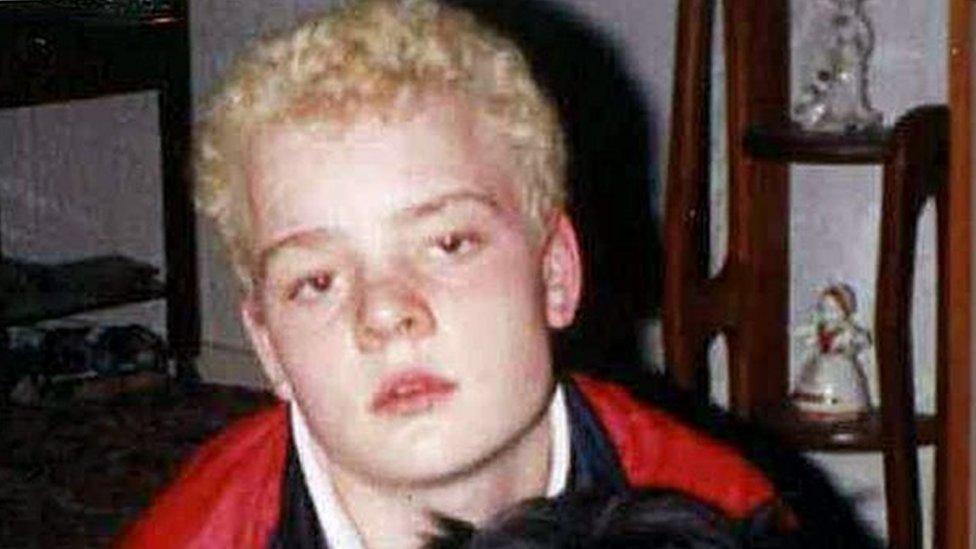Angela Wrightson death: Murder accused asked 'how does it feel to kill?'
- Published

Angela Wrightson's body was found at her home in Hartlepool by her landlord
A teenage girl accused of murder asked her care worker a series of questions about killing someone, a court has heard.
Angela Wrightson, 39, was found by her landlord in her blood-spattered home in Hartlepool in December 2014.
She had suffered "well in excess" of 103 injuries, including 80 to her head.
Two girls, aged 13 and 14 at the time of Ms Wrightson's death, deny murder. The older girl has admitted manslaughter.
Her care worker told Leeds Crown Court that, the morning after Ms Wrightson died, the girl asked her: "How do you think it feels to kill someone? Do you think you'd feel empty? Do you think you'd feel bad?".
She later asked: "How long do you get for murder?"
The worker said she explained the difference between murder and manslaughter and that sentencing would depend on the circumstances.

Angela Wrightson was assaulted in her living room, on Steven Street in Hartlepool
She said the older girl told her she would "probably end up in jail anyway" and that it may "sort her out" because she could "do courses, have my own room, and a TV and Playstation".
An earlier witness, Andrea Robinson, a friend of Ms Wrightson, said she "had a heart of gold" but was easily taken advantage of and susceptible to bullying.
The two women would regularly drink together, the court heard, and both were recognised as being alcohol-dependant.
Miss Robinson said she had seen the two defendants, who cannot be named because of their age, at Ms Wrightson's home on Stephen Street several weeks before her death.
She said the pair were "being very cheeky" and were "knocking things, ornaments, and that" off surfaces in the home.
She said Ms Wrightson was pleading with the girls to stop it and asking them to behave.
Under cross examination, Miss Robinson admitted that, because of drink and other health problems, her memory "could be hazy".
The trial, scheduled to last for five weeks, continues.
- Published22 February 2016

- Published18 February 2016

- Published17 February 2016

- Published17 February 2016
